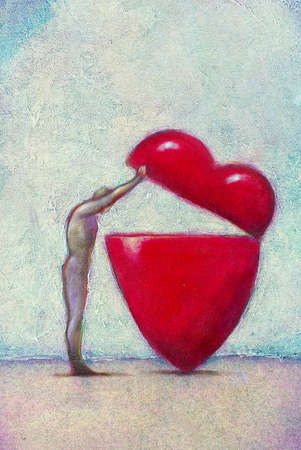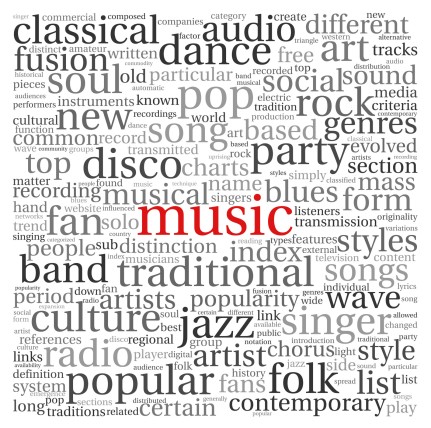Today I am grateful for my musical diversity.
The question, “What kind of music do you play?” has always been a difficult one for me to answer. When someone asks that question, most often they are thinking in terms of genre — rock, country, blues, jazz, folk, etc. They ask a simple question and they expect a simple answer. But I just don’t have one.
In my early years, I really wasn’t moved by music all that much. Most of what I heard was whatever my parents were playing — some pop standards, as sung by Ella Fitzgerald, Mantovani, Jackie Gleason’s orchestra, etc. It was mostly in the background for me. My attention was elsewhere. I did enjoy hearing my mom sing around the house, but it didn’t grab my attention the way sports did. Maybe if I’d heard Elvis or Chuck Berry or Jerry Lee Lewis, but that was not even on the radar at our house..
I started noticing music in 1961. My friends were listening to the radio, so I did, too. And the radio was playing songs that moved me — Running Scared by Roy Orbison, Travelin’ Man by Ricky Nelson, Take Good Care of My Baby by Bobby Vee, Runaround Sue by Dion and the Belmonts, Hit the Road Jack by Ray Charles, The Lion Sleeps Tonight by The Tokens, and so on. By the end of 1963, I was fully engaged with music – Del Shannon, Chubby Checker, Joey Dee, Elvis, Little Eva, Tommy Roe, The Four Seasons, Jan & Dean, The Beach Boys…
And then the revolution started. I was a senior at Chamberlain HS in Tampa, FL, when the Beatles started hitting the airwaves, and the charts, in February of 1964. I got my first guitar around that time, too. I was fascinated with the idea of being able to play music and that fascination drove me to play everyday.
For the first few years, it was all rock and roll. There was so much music from so many incredible artists that laid the foundation for all that followed. It really was a musical revolution.
Rock led me to country rock, which eventually led me to country. I also discovered reggae, folk, blues, R&B., country swing, gypsy jazz, bluegrass, and lots more. I found that I liked them all and they all influenced me and my songwriting.
So, people would ask me, “What kind of music do you play?” and I would have this long explanation, but nobody really cared. They just wanted me to say, “Rock,” or “Country,” or “Blues…”
So I started looking for a simpler answer. I realized that, while I liked all these different styles of music, I certainly didn’t like all of it. So what was the difference? Why did I like one country song, but not another? Or rock, or R&B, etc.? I slowly realized that, besides the obvious fact that some songs were just written and played better than others, the real difference was how the songs affected me. Whether they moved me or not, and how well they did that.
And I began to realize I didn’t want to write songs that would leave people sad or angry, or anything like that, because I didn’t like songs that did that to me. So I began to write with a specific intention — to help facilitate the opening of the heart of the listener.
Now when people ask me what kind of music I play, I have a much better answer: “Songs that open the heart.” And the reason I do is because, by listening to and playing a lot of different styles, I was able to discover the common thread that moved me in all of them, in much the same way that moving a lot taught me to focus on the commonalities shared by widely diverse cultures. I’m not saying this is the only way to do it, just that this is what worked for me.
So I’m grateful for my musical diversity. I’m grateful for being exposed to so many great musical influences over the years. And I’m grateful for having had the privilege of seeing live performances by an unbelievable list of legendary artists. The blessing of the right place and the right time. Mostly, though, I’m grateful for the result of all of that influence; for now being able to write a song that draws on such a rich and varied heritage of musical creativity. It has certainly made me a much better writer and performer than I would have otherwise been.

